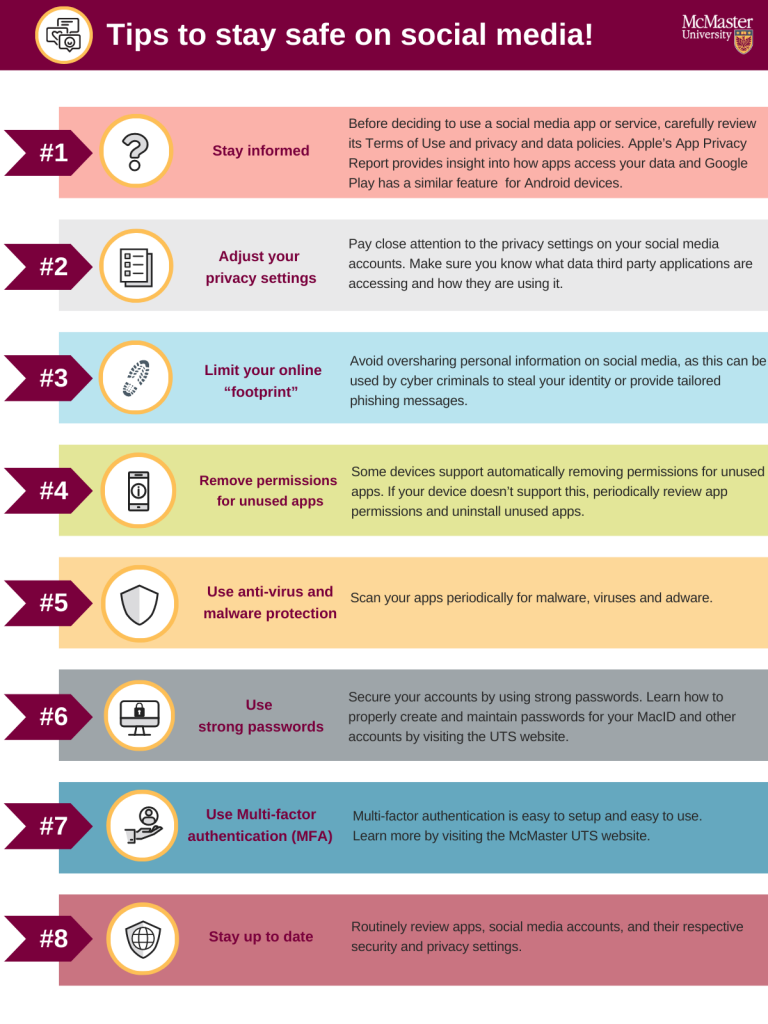Every member of the McMaster community has a role to play in protecting the information we access through social media and ensuring everyone’s privacy.
We encourage members of the McMaster community to stay aware of the privacy risks when using social media platforms, such as TikTok, Twitter, Facebook, and Instagram.
Below are tips from McMaster IT Security Services to protect your privacy when using social media apps for personal or professional use.
- Stay informed – Before deciding to use a social media app or service, carefully review its Terms of Use and privacy and data policies. Apple’s App Privacy Report provides insight into how apps access your data and Google Play has a similar feature for Android devices.
- Adjust your privacy settings – Pay close attention to the privacy settings on your social media accounts. Make sure you know what data third-party applications are accessing and how they are using it.
- Limit your online “footprint” – Avoid oversharing personal information on social media, as this can be used by cybercriminals to steal your identity or provide tailored phishing messages.
- Remove permissions for unused apps – Some devices support automatically removing permissions for unused apps. If your device doesn’t support this, periodically review app permissions and uninstall unused apps.
- Use anti-virus/malware protection – Scan your apps periodically for malware, viruses, and adware.
- Use strong passwords – Secure your accounts by using strong passwords. Learn how to properly create and maintain passwords for your MacID and other accounts here.
- Use Multi-factor authentication (MFA) – Multi-factor authentication is easy to set up and easy to use. Learn more about it here.
- Stay up to date – Routinely review apps, social media accounts, and their respective security and privacy settings.
To learn more, continue to explore the McMaster University IT Security website and the McMaster Privacy Office website. The Government of Canada also offers helpful resources on its Canadian Cyber Security website.

